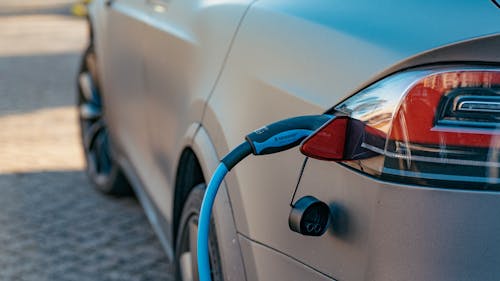EDITORIAL: Can electric vehicles save New Jersey from climate crisis?
Selling only electric vehicles presents logistical and ethical concerns worth considering

There is no denying it at this point: it has been above 60 degrees in February in New Jersey, and anyone who knows anything about New Jersey can tell you this is not normal.
The incessant calls for the government to do something drastic about climate change seem to drown each other out. But now that the government is starting to take action and the calls "to do something" about climate change no longer seem so far away, it is important to look at a couple of concerns.
Will these solutions actually be effective, do we have the foundation to support them and what will they mean for the common person and their lifestyle?
Gov. Phil Murphy (D-N.J.) announced Wednesday that New Jersey will look to achieve 100 percent clean energy and to sell only all-electric new cars by 2035. While these kinds of ambitious initiatives seem effective in theory, the implementation of these goals seems much more ambiguous.
For one, electric cars are not the end-all-be-all solution. Overall, electric vehicles produce less greenhouse gas emissions than conventional gasoline-powered vehicles, but they are not completely zero energy because making the batteries and charging them causes environmental harm.
The mining of raw materials to make the batteries can cause not only environmental harm but also health issues for nearby communities, such as a mining area within the Democratic Republic of Congo. It is ironic how a climate change solution can be labeled as green at the expense of other communities. There is also the environmental concern of properly recycling electric car batteries without causing additional harm.
Another downside to electric vehicles is their expensive price tag. Electric vehicles are still generally more expensive than gasoline-running vehicles. Even though prices of electric cars are projected to go down and 70 million has been set aside by the New Jersey government to address the cost of electric vehicles and make emission-free cars, consumers will likely need additional convincing to make such a purchase.
Part of the appeal of gasoline cars is the existence of the used car market, which helps buyers to avoid buying a brand new and consequently very expensive car. For example, the U.S. sales of used light vehicles were approximately 43.1 million units as compared to 15.3 million new light vehicle units in 2021.
Because electric cars are relatively new to the market, there will inevitably be fewer used electric cars available for purchase for consumers. The used car market is already struggling as it is. So to ask consumers to eventually move to wildly expensive electric vehicles is a scary proposition, especially when there have been barriers to receiving federal tax credits that could subsidize these purchases.
Within the Inflation Reduction Act signed into law in August, there is a federal tax credit to incentivize people to buy electric vehicles. But, as of now, a majority of the electric vehicles available now do not qualify for the credit. If states like California are starting to ban the sale of gasoline vehicles, it is vital for the government to make existing tax credits accessible, not burdensome.
Other logistics are also very concerning. There are reportedly 10 times more gas stations in New Jersey as compared to more than 300 public charging stations across New Jersey. Reportedly, Exon alone has more than 300 gas stations in New Jersey. Not to mention what will happen to the jobs of gas station attendants once charging stations eventually expand.
But focusing on electric vehicles as the big climate change solution introduces other problems, one of which is that it forces attention away from investing in public transportation. While public transportation may not be convenient in more rural areas of New Jersey as compared to places like New Brunswick, there is still a significant resistance and stigma for using public transportation.
Even though Murphy announced that more than $24 million would be invested to increase access to public transportation and facilitate "transit-oriented development," it is important that the emphasis on electric cars does not outshine the need for public transportation maintenance, improvement and use.
Ultimately, it is important to diversify the strategies for tackling climate change and not remain fixated on one big solution.
There is also a dire need to look into and invest in other industries. As Ray Cantor, Vice President of Government Affairs of the New Jersey Business & Industry Association, points out, "The all-electrification policies the administration seeks ignores or discounts other options for carbon reduction that will develop over time, such as hydrogen, renewable natural gas and other emerging technologies."
But making the "Renewable transition" as outlined by Deloitte’s Insights, is much more complicated than one may think. For example, even though the power industry is ready to spearhead the renewable transition, approximately two-thirds of the respondents from the power industry were skeptical of meeting 2035 targets, as aims to decarbonize utilities would probably take until 2050 to achieve.
Ultimately, these ambitious goals are important and needed, but if you are trying to force a change, it will not be sustainable and equitable unless there is a proper foundation to support it. New Jersey cannot only focus on the big long-term goal of reducing carbon emissions but must instead focus on the smaller foundational changes along the way, which have important effects that need to be addressed.
The Daily Targum's editorials represent the views of the majority of the 155th editorial board. Columns, cartoons and letters do not necessarily reflect the views of the Targum Publishing Company or its staff.



